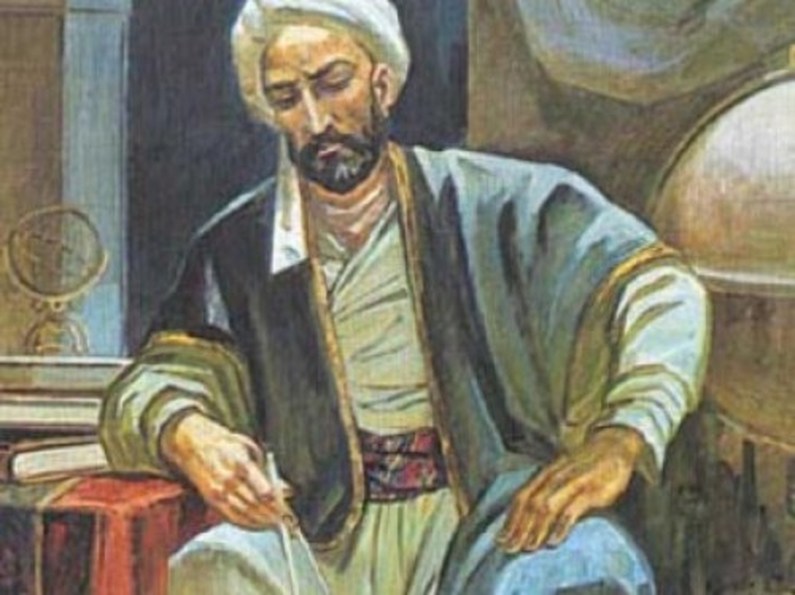|
Nasir al-Din Tusi was one of the most celebrated scholars of the 13th century. He was born in the city of Tus, in medieval Khorasan, in northeastern Iran, and died in Baghdad in 1274. He wrote about 165 titles on astronomy, ethics, history, jurisprudence, logic, mathematics, philosophy, poetry and science. Though primarily a reviver of the Peripatetic philosophical tradition of Avicenna and Farabi, he was also influenced by the ideas of Suhrewardi. He defended Avicenna from the criticisms levelled against him after his death from the direction of theology. He also met Attar of Nishapur and composed his own manual of philosophical Sufism. Between Ptolemy and Copernicus, Tusi is considered one of the most eminent astronomers of his time. He convinced Hulegu Khan, the Mongol leader, to construct an observatory in Maragheh, near Tabriz in Iran, establishing accurate astronomical tables for better astrological predictions. He made accurate tables of planetary movements, calculating the positions of planets. His famous student Sham ad-Din Bukhari was the teacher of Byzantine scholar Gregory Chioniadas, who in turn trained astronomer Manual Bryennios in Constantinople in the 1300s. In mathematics, Tusi published a sophisticated "proof" of Euclid's parallels postulate that was important for the development of non-Euclidean geometry, and he treated trigonometry as a discipline independent of astronomy, which was in many ways similar to what was accomplished later in Europe by Johannes Müller (Regiomontanus). Tusi’s major scientific writings in astronomy, including Al-Tadhkira fī ‘ilm al-hay'a, in which he reformed Ptolemaic astronomy, had an enormous influence upon late medieval Islamic astronomy as well as the work of early-modern European astronomers, including Copernicus. Today, a 60-km diameter lunar crater and planet 10269 are named after him. In Feb 2013, Google celebrated his 812th birthday with a doodle, which was accessible in its websites with Arabic language calling him al-Farsi. |
Details
AuthorSaghi (Sasha) Archives
May 2019
Categories |

 RSS Feed
RSS Feed